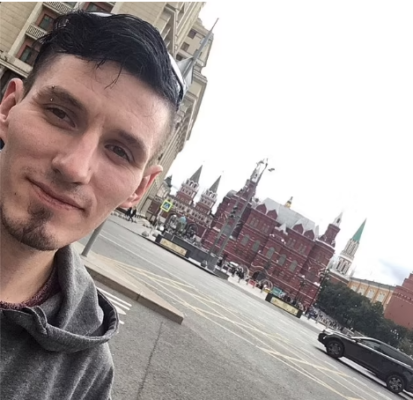Unraveling the Circumstances Surrounding the Detention of a 32-Year-Old Dual U.S.-Russian Citizen, Robert Woodland :
In a recent turn of events, the arrest of a 32-year-old dual U.S.-Russian citizen, Robert Woodland, on drug charges in Russia has raised questions about the complexities surrounding dual citizenship and the legal implications of such cases. As Woodland appeared in court on January 6 following his arrest on January 5, this incident underscores the challenges individuals face when caught in legal matters that span multiple national jurisdictions.
Understanding Dual Citizenship:
Dual citizenship, also known as dual nationality, occurs when an individual is a citizen of two countries. In this case, Robert Woodland holds citizenship in both the United States and Russia. While dual citizenship is recognized by some countries, others may have restrictions or specific regulations governing the status of dual citizens. The legal implications of such cases can vary widely, and individuals like Woodland find themselves navigating a complex legal landscape.
Robert Woodland’s arrest and Legal Proceedings :
Woodland’s arrest on drug charges in Russia adds a layer of complexity to his situation. The details surrounding the charges, the circumstances of his arrest, and the evidence presented in court are critical factors that will determine the trajectory of his legal proceedings. The dual nature of his citizenship may further complicate matters, as the legal systems of both the United States and Russia come into play.
The Importance of Consular Assistance:
When a dual citizen faces legal issues in a foreign country, consular assistance becomes crucial. The United States and Russia both have diplomatic missions responsible for providing support and guidance to their citizens abroad. Consular officials can facilitate communication with family members, provide information about the local legal system, and ensure the individual’s rights are protected to the extent allowed by the host country’s laws.
Challenges in Dual Citizenship Cases:
Cases involving dual citizenship often highlight the challenges of navigating two distinct legal systems. Questions may arise regarding which country has primary jurisdiction, how extradition processes work, and how diplomatic relations impact the handling of such cases. Robert Woodland’s situation brings these complexities to the forefront, shedding light on the intricacies involved when legal matters transcend national borders.
International Implications caused by Robert Woodland’s arrest:
The arrest of a dual U.S.-Russian citizen in Russia inevitably carries international implications. Diplomatic channels may be activated to address the case, and discussions between U.S. and Russian authorities could influence the course of legal proceedings. The sensitivity of such cases requires careful navigation to ensure that the rights and well-being of the individual are safeguarded while respecting the legal sovereignty of the host country.
Public Reaction and Media Coverage on Robert Woodland’s arrest :
As news of Robert Woodland’s arrest emerges, public reaction and media coverage become integral components of the narrative. Dual citizenship cases often capture public attention, prompting discussions about the intersection of nationality, legal rights, and international relations. The media’s role in shaping perceptions and disseminating accurate information is pivotal in fostering a nuanced understanding of the circumstances surrounding Robert Woodland’s arrest.
Read More News:
- Las Vegas Entrepreneurs Pursue Compensation Amidst Formula 1 Impact
- 50 Years of Service with Flight Engineer Paul J. Waeghe, Jr
The arrest of Robert Woodland, a dual U.S.-Russian citizen, on drug charges in Russia brings to light the intricate dynamics associated with dual citizenship and the legal complexities that arise when individuals find themselves entangled in legal matters spanning multiple countries. As legal proceedings unfold, the importance of consular assistance, international diplomacy, and public awareness becomes paramount. Robert Woodland’s case serves as a reminder of the challenges faced by dual citizens navigating the intersection of legal systems and underscores the need for careful consideration and collaboration between nations to ensure fair and just outcomes in such cases.
